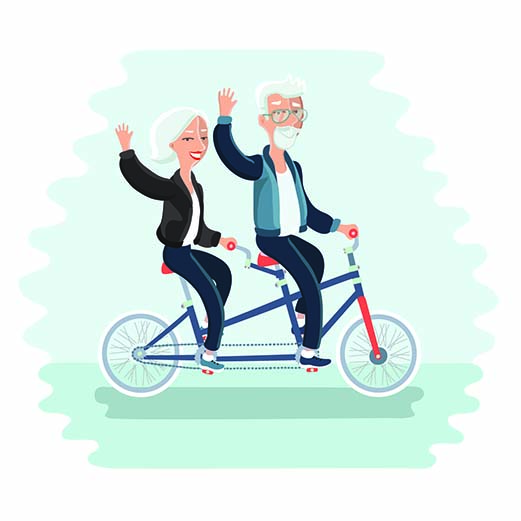The Government is encouraging the nation to get fit and lose a bit of weight with a new national campaign to get millions of adults to kick start their health and reduce their risk of serious illness, including COVID-19.
There is a free suite of free tools and apps supporting people to eat better, drink less alcohol and get active, including the free 12-week NHS Weight Loss Plan, helping people make healthier food choices and learn skills to prevent weight gain.
With this in mind, we thought we’d do a quick run through of some easy ways to improve your fitness and become a bit healthier over the coming months!
Increase your steps

Monitoring your step count has become a national obsession for many. People young and old are using step counters such as FitBit or their smart phone to keep track of how much walking they are doing each day. If you haven’t joined in yet now could be a great time to start.
Most people aim for around 10,000 steps a day, but we recommend adjusting this for your lifestyle, age and activity levels and come up with a target that is realistic for you. The great thing about tracking your steps is it encourages you to walk a bit more if you see you haven’t clocked up many steps that day. This can really help to improve your fitness as well as getting you out exploring your local area.
Exercising at home
Even if you can’t get out much, there are plenty of exercises you can do at home. Walking upstairs, jogging on the spot, dancing to music or doing leg exercises, whilst using the sofa for support are all good options. If you have a communal garden, why not take a morning and afternoon stroll around it? You could even ask a neighbour to join you so you can have a bit of chat at the same time!

Eating right
Think about what food you are eating and your portion sizes. Often people think they are eating healthy but are having large portions. A portion control plate can help you understand how much of each type of food you should ideally have on your plate.
Having a balanced diet is crucial to good health and this should include a mix of lean meat/fish or other protein, vegetables and fruit, carbohydrates and fats. No food should be a banned food but being mindful of how much you are eating is essential, especially if you are looking to lose a bit of weight.
Keep an eye on your snacks too. A biscuit or two with your morning cuppa, a packet of crisps with your lunch, a cake in the evening or some chocolates can all bump up your calorie intake. Try cutting back to just one snack a day if you can or swapping unhealthy snacks such as cakes and biscuits for a piece of fruit, nuts or crudities.
Drink more water
A third of Brits don’t drink water every day according to a study done last year. Not drinking enough water can cause people to have headaches as they are dehydrated, which can lead to more long-term effects such as constipation, reduced kidney function and kidney stones, urinary tract infection and mental confusion.
Water is great as it has no calories, so a perfect choice for those looking to shed a few pounds! The NHS recommend drinking between 6-8 glasses of water a day. They suggest trying sparkling water or adding a slice of lemon and lime if you don’t like plain water.
Alternatively, plain tea, fruit tea and coffee (with no sugar) can also be healthy. You can easily see if you are hydrated enough by checking the colour of your urine which should be very light coloured if you are sufficiently hydrated.

Cut back on alcohol and fizzy drinks
Alcohol and fizzy drinks can add up to a lot of empty calories so it’s a good idea to not over do these. Alcohol can also have a big impact on health if you drink too much. By all means enjoy a glass of wine or pint of beer but just make sure you are sticking within the recommended government guidelines of 14 units of alcohol a week.
Fizzy drinks are not much better for you either as they are full of sugar so try to limit these. If you are keen to lose weight cutting out alcohol and / or fizzy drinks altogether for a few months could be one small change you could make!
As with anything, it’s all about moderation. Small changes can have a big impact on your health and fitness so try changing one or two things over the next few weeks and see how you get on!




